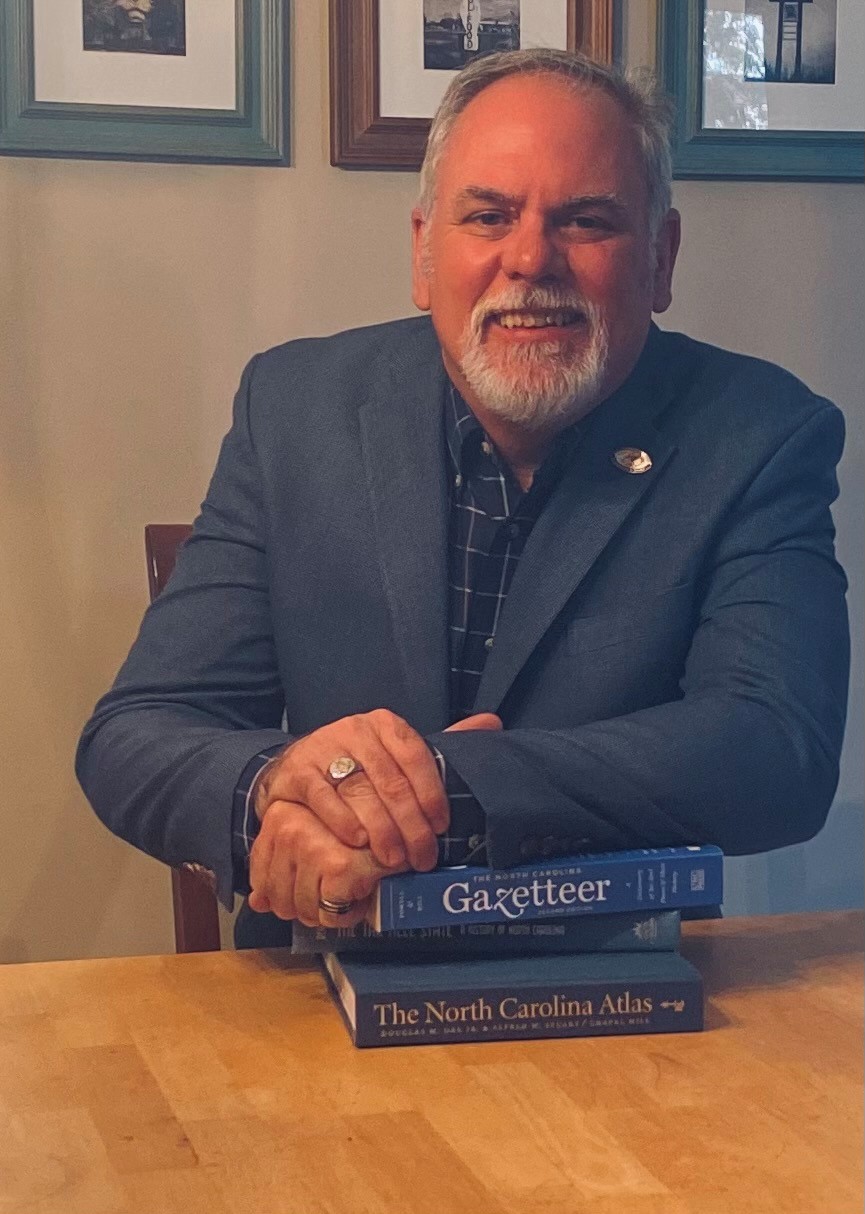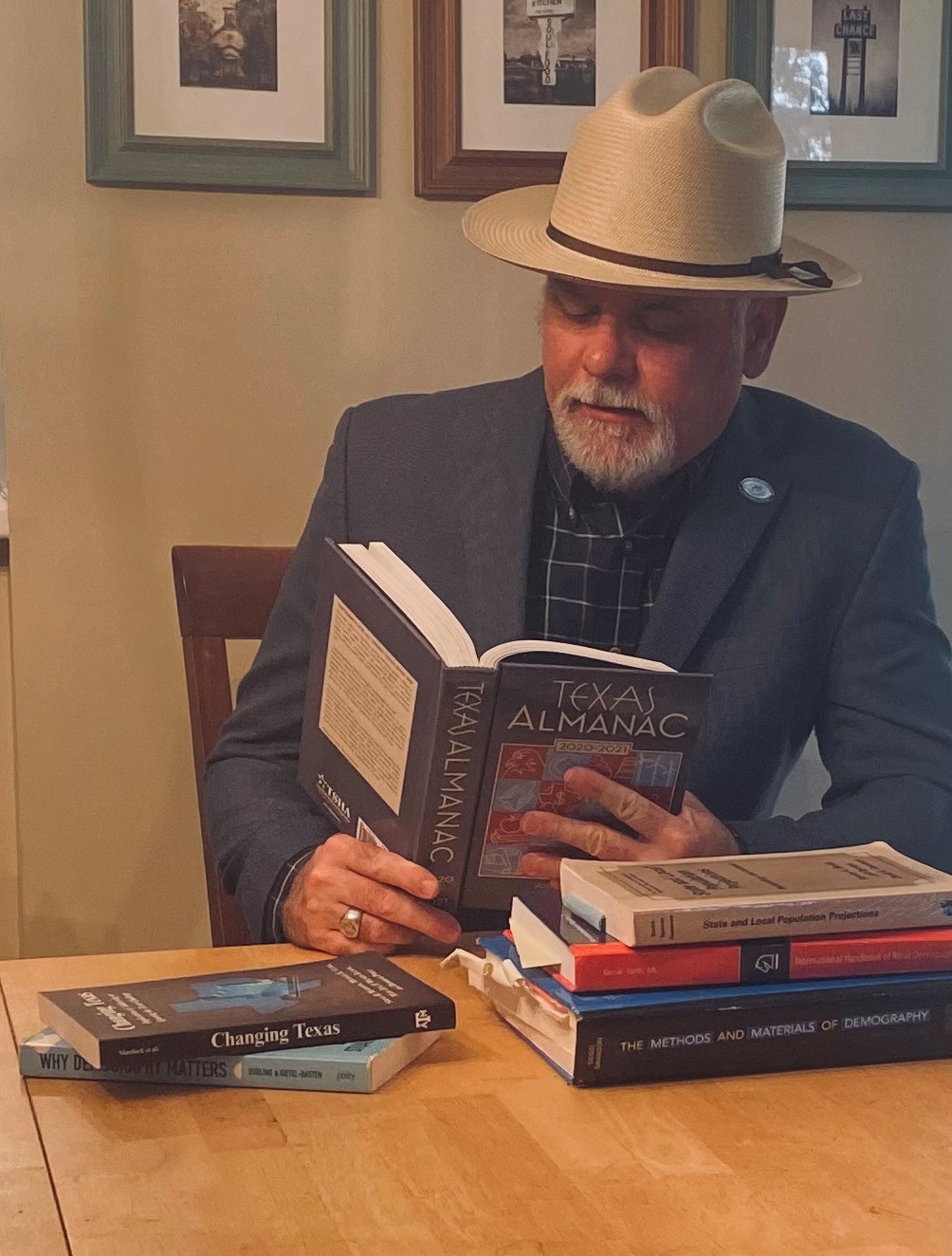Posted on September 28, 2021 by Amanda Cerreto
How do population estimates, census counts and budgeting affect the daily lives of average citizens? Does filling out that form indicating how many people live in your household really do anything?
The answer is yes, it does - and in more ways than one might think.
 Michael Cline
, Ph.D. '10, has devoted his career to population studies in one form or another. His daily work as State Demographer impacts everything from transportation, schooling and the arts to water systems, sewage, infrastructure and more. And it all started here at the University of Texas at San Antonio.
Michael Cline
, Ph.D. '10, has devoted his career to population studies in one form or another. His daily work as State Demographer impacts everything from transportation, schooling and the arts to water systems, sewage, infrastructure and more. And it all started here at the University of Texas at San Antonio.
Cline was working at UTSA's Institute for Economic Development , helping small businesses conduct market research. "My particular specialty was demographics, which I had done in different capacities since I left Texas Tech," Cline said. "As I was doing that work, I wanted to learn more skills and improve on that work, and then UTSA started its Ph.D. in Applied Demography program."
Cline was initially hesitant to enroll; he had already been in the workforce for a decade and wasn't sure what going back to school would look like. He quickly realized, however, that the program fit his needs exactly and it was backed by a supportive faculty.
“The great thing about the program is it was established to really focus on working on public policy issues, particularly in Texas but also nationwide,” Cline said. “Also, the program welcomed many, like me, who were first generation college students and folks who were returning to graduate school - either to enhance their current career or change to a different line of work.”
When Cline enrolled in the program, it was just getting off the ground. Now, over fifteen years later, it has flourished. The program has generated more than 60 new Ph.Ds. working in local and federal government, private sector data analytics, higher education, social media and healthcare.
After graduating from the program, Cline took a job at the Hobby Center for the Study of Texas at Rice University where he worked on a range of public policy projects - including one of the first analyses of the Affordable Care Act's impacts for Texas Counties, the demand for early childhood programs in Texas, and implications of demographic change for transportation demand. For the past four years, he has served as the State Demographer of North Carolina in the Office of State Budget & Management. He has been serving the state by preparing population estimates and projections for all cities and counties and advising the Governor's office and other state agencies on the implications of demographic change. “State or federal funds are often distributed on a per capita basis, so I need to plan and forecast for cities and counties that are seeing growth so they can receive appropriate funding,” he said.
 The forecasting models and data processes Cline worked with in the applied demography program directly apply to the work he does on a daily basis. It's not all population counts and budgets, however. The work his office does can directly impact policy.
The forecasting models and data processes Cline worked with in the applied demography program directly apply to the work he does on a daily basis. It's not all population counts and budgets, however. The work his office does can directly impact policy.
“Demography is a study of populations,” Cline said. “And that’s what policies are for - people. That's the neat thing about demography. You have an opportunity to work on a lot of different things. I’m not just looking at population, but I’m looking at how demographic change impacts schools. Or how we prepare for more older people. Do we have the capacity to provide the medical and other services for people as they age?”
Cline encourages anyone interested in policy work, planning, and population studies to consider getting into demography. “A lot of people go straight through from undergrad to get their Ph.D.,” he said. “There's a benefit of going straight through, particularly if your plan is to teach, but there's also a benefit of coming back. If you’re taking that route like I did, your academic work will benefit from your experience. You may have more responsibilities at an older age, but don't be afraid to reach out for help and look for opportunities to work with your professors and others in the community.”

